Panellists at HSJ’s recent dinner debate not only explored how patients could experience integrated care – they went on to define a charter for the ideal integrated care organisation. By Claire Read
Opening an HSJ dinner debate on integrated care, Alastair McLellan was very clear on what the panel would not be expec.ted to discuss.
“We’re not going to spend any time trying to define integrated care,” said the HSJ editor, who chaired the debate, organised in association with CSC. “We could spend the entire evening doing that but, in my view, integrated care is in the experience of the patient, and the patient knows when they’ve experienced it.”
‘There has been a significant appetite from local health and social care organisations to collaborate’
Instead, he was keen to explore how we can ensure that every patient has that knowledge. When asked what one change would make the biggest contribution to the development of integrated care, Dr Jo Roberts offered a concise solution.
“Get the necessary healthcare and social care information about any patient available to the right person at the right time and in the right place,” argued the clinical lead for innovation, engagement, communication and medicines optimisation at South Devon and Torbay Clinical Commissioning Group - an organisation acknowledged as a pioneer in integrated care.
Dr Roberts’ fellow panellists agreed with his assertion that information sharing will be key if integrated care is to become standard.
“[We need] a real time record across health and social care,” argued Liz Mear, chief executive of the North West Coast Academic Health Science Network. “Patient discharge summaries would be on there, records of medicines that have been prescribed, a GP could get access to test results straightaway, and the patient or service user would have an area where they could input things which are key for them.”
Participants
Catherine Dampney chief information officer, NHS South Commissioning Support Unit
Kait Duerden healthcare client executive, CSC
Bridget Fletcher chief executive, Airedale Foundation Trust
Dr Amir Hannan GP, board member, Tameside and Glossop Clinical Commissioning Group
Philippe Houssiau vice president, healthcare and life sciences, CSC
Dr Damon Kamming consultant anaesthetist, University College London Hospitals Foundation Trust
Alastair McLellan editor, HSJ (chair)
Dr William Lumb GP, chief clinical information officer, Cumbria Clinical Commissioning Group
Liz Mear chief executive, North West Coast Academic Health Science Network
Professor Kathy Pritchard-Jones programme director of UCLPartners integrated cancer programme and chief medical officer, London Cancer
Paul Rice head of technology strategy, NHS England
Dr Jo Roberts clinical lead for innovation, engagement, communication and medicines optimisation, South Devon and Torbay Clinical Commissioning Group
Enthusiasm for change
According to the head of technology strategy at NHS England, there is wide enthusiasm for making such sharing of information a reality. Paul Rice said there had been a multitude of bids to the integrated digital care technology fund.
“There has been a significant appetite from local health and social care organisations to collaborate in terms of the information they know is required to support integrated models of care,” he told his fellow dinner debate panellists.
As ever though the devil is in the detail. Asked about the approaches the bids had embodied, Mr Rice said they were multiple and that at this stage NHS England had made a deliberate decision to be agnostic about which was best “because the principle previously was to say the centre knows best and the principle currently is not”.
“I think we would like to provide insight and intelligence as to what the benefits and merits are of alternative routes [for sharing information],” he continued. “I don’t think the current zeitgeist would say that we’d come out and say this one prevails above all else. Partly because people are starting in very, very different situations and circumstances. And if we don’t acknowledge and respect that then it’ll be ill fitting.”
Whatever approach is taken to sharing information, Professor Kathy Pritchard-Jones argued that “we’ve really got to be clear that integrated care means it’s integrated around the patient”.
“I come from a background of trying to integrate cancer pathways around a patient. We’ve really struggled to integrate care across the multiple domains that a cancer patient needs - we need to do it around the patient rather than thinking about integrating institutions or healthcare settings,” explained the programme director of UCLPartners integrated cancer programme, who is also chief medical officer for London Cancer. She said she would like to see a system like that in the Rhône-Alpes region of France, where patients carry their information on a credit card style device which can read by any doctor in the area.
It was a theme echoed by Dr Damon Kamming when asked for the one thing he thought would most encourage care integration. “I’d like to see an electronic patient record that the patient has full ownership of,” said the consultant anaesthetist at University College London Hospitals Foundation Trust.
“In antenatal care, part of the reason patients have a good experience is that they carry their own notes with them. I think if we can electronically provide that solution, the patient is then empowered and then is more satisfied as a result.”
‘When creating a pluralistic environment, it’s hard to say who owns the data’
It is an example of the “empowerlution” that Dr Amir Hannan argued was needed if integrated care is to be consistently delivered. The GP is a passionate advocate of giving patients access to their GP medical records, which he feels “empowers the patient, the carers, the GP and the service provider, but also the managers who are ensuring the service provides the best outcomes and best value with the limited resources we have”.
Another supporter of patient and carer access to GP records as a driver of integrated care was Kait Duerden, healthcare client executive at CSC. But she told her fellow panellists that information governance (IG) was constraining the ease of such access.
“I would like to see a relaxation of some of the IG rules,” she explained. “Because when you’ve got elderly parents who maybe can’t deal with that data or don’t want to deal with that data, what you have with some of the IG rules is a block of sharing that information with the people who would be best placed to help clinicians give the best care to those people.”
“I don’t know that I would use the word relax, but I would like to see a change in the IG rules,” responded Catherine Dampney, chief information officer at NHS South Commissioning Support Unit. “There are elements that I felt hamper innovation. Certainly when looking at working to create a more pluralistic environment it’s very hard to say at the moment who owns the data and how it’s going to be shared.”
She was drawing on the example of the Hampshire Health Record, a decade old centralised care record which staff at South CSU now manage. It contains information from a variety of health systems but, notably, not yet from social care.
“There has to be a consensus from delivery organisations to put information in there, and then a consensus about who has access to the information,” she explained.
“So at the moment, the local medical committee are saying it’s got to be qualified health professionals. [Social care staff] are closely supervised, intimately involved in patients’ care, but at the moment these people cannot have access [because they are not qualified health professionals]. So there’s a lot of negotiation going on around that at the moment.”
It brought the debate on to what would prove to be one its central themes: the opportunities and challenges presented by bringing health and social care together. Drawing on an example from her own trust, Bridget Fletcher spoke of culture clash as a key obstacle.
‘We’re hitting against two philosophies – paternalistic, or enabling self-care’
“We’re trying to develop a 24 hour digital hub which gives access to all intermediate care, and we’re trying to staff that with health and social care professionals,” explained the chief executive of Airedale Foundation Trust.
“And what you’re hitting against there is two different philosophies - health professionals tend to be more paternalistic, tend to want to deliver what they call holistic care, tend to really want to take over that patient’s life in a way sometimes. And then you’re coming across the social model of care which is all about enabling people to be self-caring, to look after themselves more.
“So the biggest thing we need to really focus on now is the culture - about the cultural change between different parts of the system. We’ve got a health system and a social care system trying to come together, and they come from very different philosophical points.”
Challenged to say which culture should predominate, Ms Fletcher argued a blend was necessary. “And how it should be blended is where the serious culture change needs to come in. I think it’s for patients with those professionals to design and drive a different sort of approach to care in its broadest sense.”
Election effects
Politicians are likely to have a role to play as well, of course, particularly if there is a change of government at the next election.
Labour’s plans are to give a much more significant role to health and wellbeing boards, and local government in general, in the planning of healthcare. Could such a change be a contribution to speeding up the development of care integration, asked Mr McLellan.
Ms Mear was unsure, citing concerns about “giving power without knowledge”. “Before I came into the NHS, I worked in local government for 17 years and the two cultures are completely different,” she said. “So if you sit in local government and you’ve not experienced healthcare, to understand the issues and how you might work together is quite difficult.”
Which is not to say that panel members doubted the value of local government input. There was a particular belief that healthcare could benefit from local authorities’ close connections to the population.
Dr Hannan explained how his practice manager previously worked in the finance department of the local council, and how that experience meant she was easily able to arrange a stall in the shopping centre during self-care week. “Well of course I wouldn’t have had a clue how to do that, would I,” he said with a laugh, “because of course I’m healthcare, and I’m based in the GP surgery.”
The result of going into the community to meet patients rather than expecting them to come to the surgery was an even more successful self-care week, he explained.
Building on the theme, Ms Fletcher argued that “councils have got this connection with the population, and actually the big conversations that health has got to have with local citizens is something that the council is absolutely expert in. Local government is very good at partnerships, and actually health is absolutely hopeless at partnership building. So I think there’s lots of learning there for us to do together with them.”
That includes learning about preventing ill health in the first place, argued Ms Dampney. “Where I see the value coming in, again depending on political engagement and understanding, is really the local authorities’ ability to tackle the antecedents of poor health and health inequalities and long term conditions, which is where we’re trying to get to.”
Philippe Houssiau, vice president of healthcare and life sciences at CSC, agreed. “If you wanted to provide integrated care – and integrated by definition means coordinated - you would need to go to that shift from late disease to early health. And that can only occur with a very, very joint commitment.”
Single system
Dr William Lumb, chief clinical information officer at Cumbria CCG, added: “We know the evidence says that social isolation is one of the markers of sudden death in certain groups. Social interventions with individuals can have significant health gains. It should be one system; it needs to be one system – conceptually I think it’s the right thing to do.”
It was a point on which Mr McLellan expanded the debate for the final part of the evening. He challenged panellists to build a charter for the ideal integrated care organisation. Each person was invited to add a line to the charter, with the ground rule that they be “as specific as possible, to give clear guidance to the people who are going to run this organisation”.
The discussion resulting from this challenge was predictably wide ranging, and suggestions covered the full range of areas likely to need attention if integrated care is to become possible on a daily basis – culture, data, finance and patient choice.
Below is the panel’s charter for the ideal integrated care organisation. Regardless of which party wins the next general election, it is a clear blueprint for the future, as well as a neat summary of the many topics discussed during this lively HSJ dinner debate.
HSJ panellists’ charter for the ideal integrated care organisation
At the ideal integrated care organisation, we use asset based community development
“We recognise that we are not going to be able to minutely define what’s required, but instead we work within the community, providing people with the tools so that they can develop their own solutions. We support people rather than telling them.”
• Dr Amir Hannan, GP, board member, Tameside and Glossop CCG
Through this, we help people to self-organise
“We create the digital capabilities and opportunities for people to surprise us. We can’t predict what people will do with some of these capabilities that we make available to them and we shouldn’t try to. There doesn’t need to be a professional in every one of these relationships to deliver the outcomes that we’re aspiring to.”
• Paul Rice, head of technology strategy, NHS England
We use flexible, patient-centric care models
“It’s about patient empowerment of access to information, but also to allow the patient to engage in a dialogue to plan their care pathway. There is co-creation of a care model for that patient.”
• Catherine Dampney, chief information officer, NHS South Commissioning Support Unit
We have true multidisciplinary working, which we incentivise
“People are incentivised to work right across organisations and teams for the benefit of patients. There are disincentives not to do it because you’re then not treating that patient or service user the right way.”
• Liz Mear, chief executive, North West Coast Academic Health Science Network
“The incentive is that we give people high quality tools to make their jobs easier and look after patients better. Everyone wants to look after patients better in the NHS, and everyone wants life to be easier, so high quality tools act as an incentive.”
• Dr William Lumb, GP, chief clinical information officer, Cumbria Clinical Commissioning Group
We share data - when it is relevant to do so
“There is expectation of data sharing, based on an opt-out system. Your pseudonymised data as an individual contributes to the continuous ability of the system to learn, and also potentially benchmarks your own situation against patients like you at a really clinically meaningful level.”
• Professor Kathy Pritchard-Jones, programme director of UCLPartners integrated cancer programme and chief medical officer, London Cancer
“There is transparency of outcomes.”
• Dr Damon Kamming, consultant anaesthetist, University College London Hospitals Foundation Trust
“We share data, but only if it’s relevant to the health and social care aspirations. There is an awful lot of data we can share going forwards, but the reality is that not all of it is relevant to the healthcare experience so we have to be careful.”
• Dr William Lumb
We use the data, and receive capitated funding based on outcomes
“There is the management, ownership and governance of a health economy on a capitated
basis, with an emphasis on risk management, risk stratification and health analytics.”
• Philippe Houssiau, vice president, healthcare and life sciences, CSC
There is a single and consistent point of contact for patients, and patients can communicate in the way that suits them best
“That could mean an individual, or two or three individuals if I have a problem 24 hours a day and so can’t expect the same person. But I know what their name is, who I talk to, and the way I want to communicate with them. I might always want to pick up the phone and talk to somebody, but I might be somebody who just wants to email or wants to text.”
• Kait Duerden, healthcare client executive, CSC
We get patients to the right person immediately
“There is immediacy of opinion; getting to the right specialist
opinion immediately using technology. Instead of putting patients on an elongated pathway where eventually they get to see the right person, they see the right person straightaway.”
• Bridget Fletcher, chief executive, Airedale Foundation Trust
We connect patients
“To knowledge, and to each other.”
• Dr Amir Hannan
We are open with patients about costs - and give them the choice of having a personalised health budget
“We allow patients to make a cost/benefit analysis.”
• Catherine Dampney





















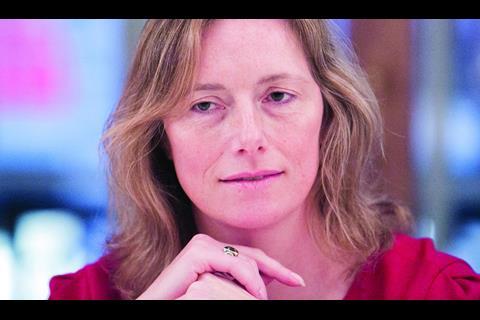
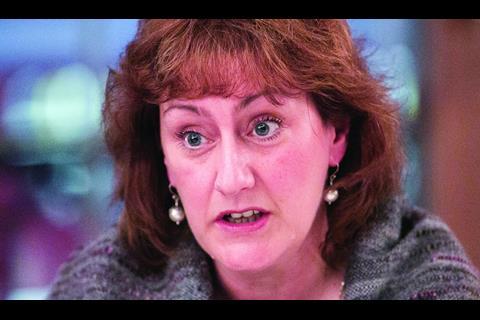
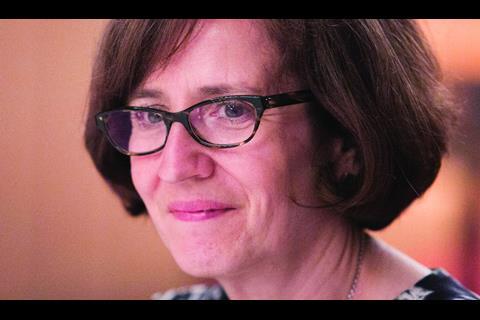
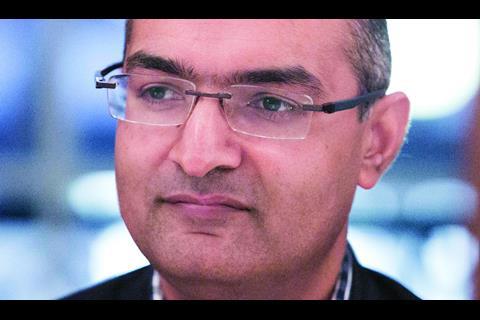

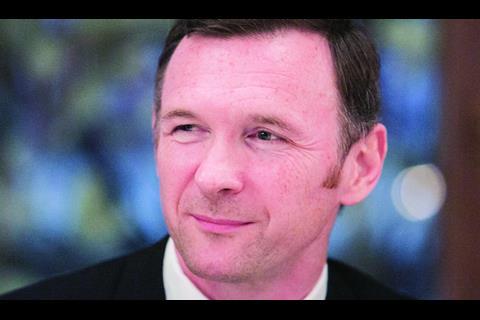
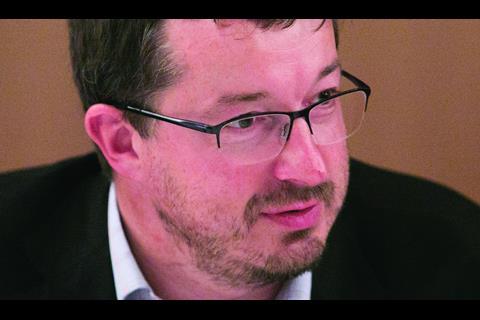
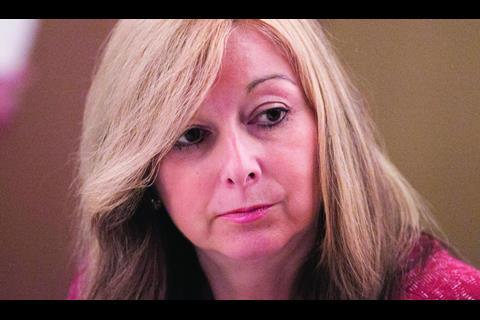
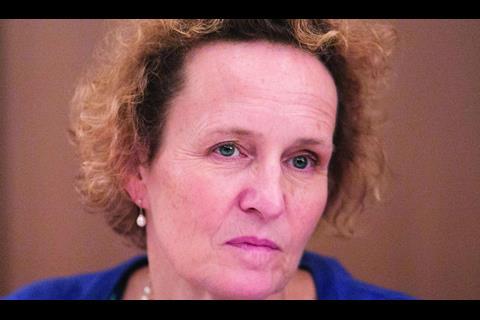
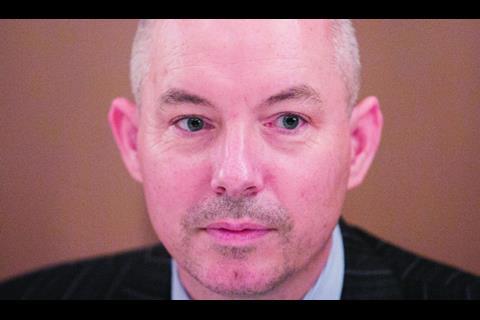






No comments yet